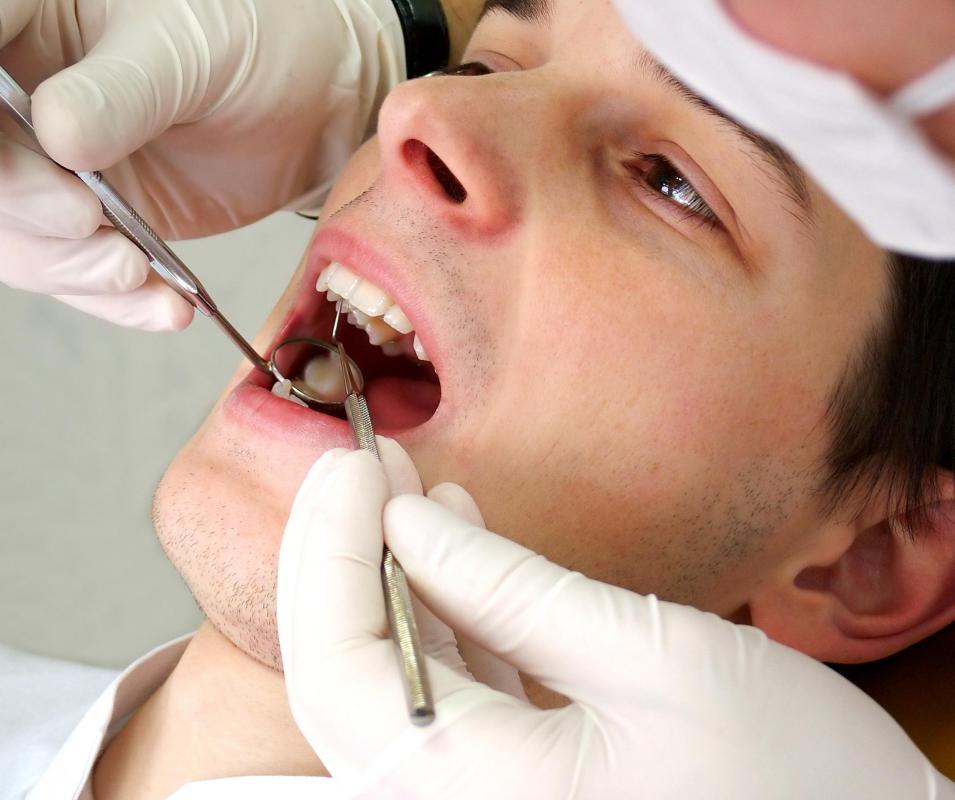At WiseGEEK, we're committed to delivering accurate, trustworthy information. Our expert-authored content is rigorously fact-checked and sourced from credible authorities. Discover how we uphold the highest standards in providing you with reliable knowledge.
What Is Odontophobia?
Odontophobia is a severe fear of visiting the dentist or having a dental procedure performed. Many people experience some form of negative emotion when visiting the dentist, but people with odontophobia often avoid a dental exam unless there is a severe problem. Sometimes a fear of dentists is caused by a direct experience, but it also can be the result of indirect experiences, such as hearing a bad story from a friend. Treatment can involve either behavioral techniques or medication, depending on the severity of the problem.
Although a severe fear of dentistry is relatively uncommon, it has been estimated that around three of every four people in the United States have some fear of visiting the dentist’s office. Around 5 percent of these people have severe odontophobia, which prevents them from visiting a dentist unless there is an emergency. Avoiding dentistry until a severe problem occurs often reinforces a person’s negative beliefs about dentists.

Odontophobia is usually the result of a bad experience. Most people with a severe fear of dental procedures have had a painful dental procedure in their life, often as a child. This is known as odontophobia caused by direct experience. It is thought that impolite or unapproachable dentists are more likely than friendly dentists to cause odontophobia through direct experience.

Some people develop odontophobia through indirect experiences. If, for example, a person regularly hears negative stories from other people about dental procedures, then he or she may become fearful despite having no direct negative experiences. The portrayal of dentists in the media also may cause a person to become fearful of dental procedures without having any direct experience.

There are a number of techniques for treating odontophobia. Behavioral techniques, such as positive reinforcement, are often effective at treating mild to moderate cases. Teaching a person relaxation strategies also can help in some situations. Other methods, such as hypnotherapy and neuro-linguistic programming (NLP), are sometimes useful for treating a fear of dentistry.

If dental care is required urgently but a patient doesn’t feel able to undergo the procedure, then medication is sometimes required. In some cases a mild sedative is given to a patient to help him or her relax and feel less stressed. The benefit of mild sedatives is that the patient can still talk to the dentist. Sometimes, however, depending on the type of procedure being performed, a general anesthetic may be required.
AS FEATURED ON:
AS FEATURED ON:















Discuss this Article
Post your comments